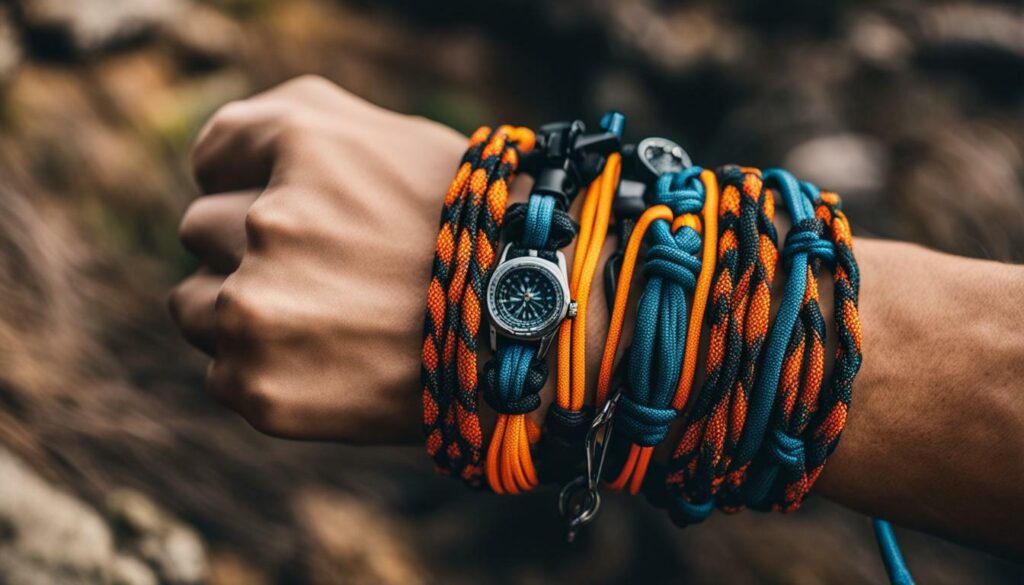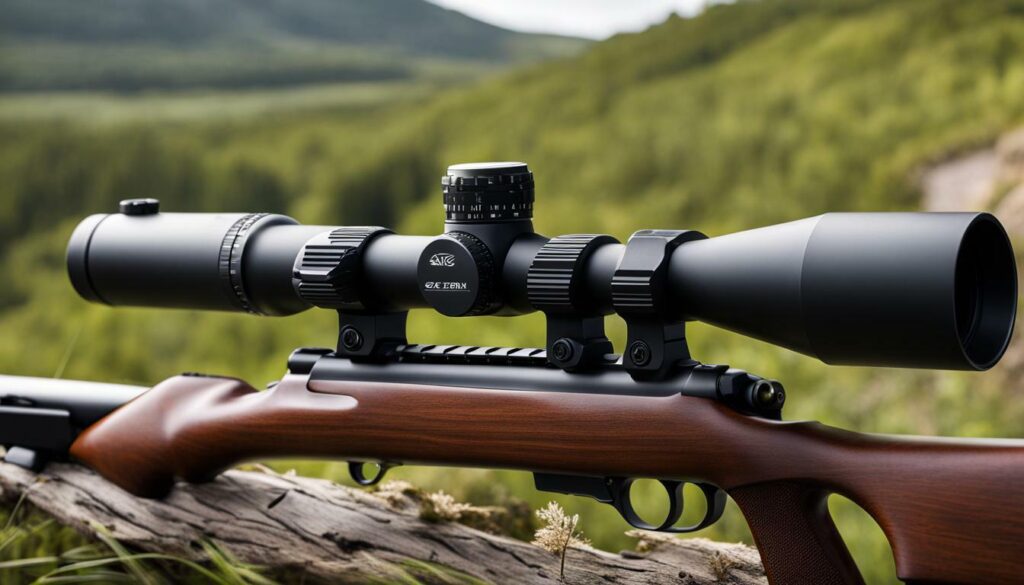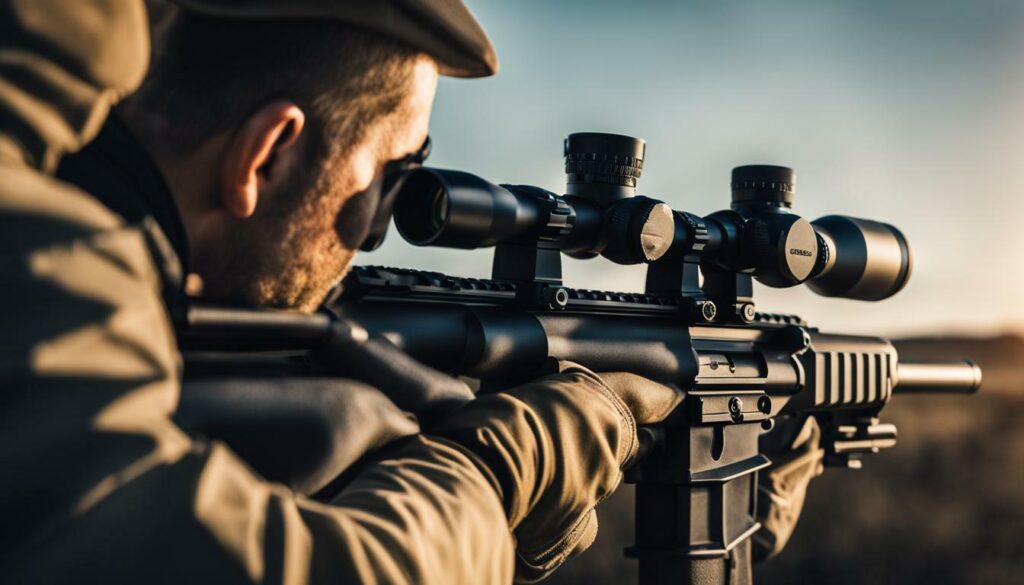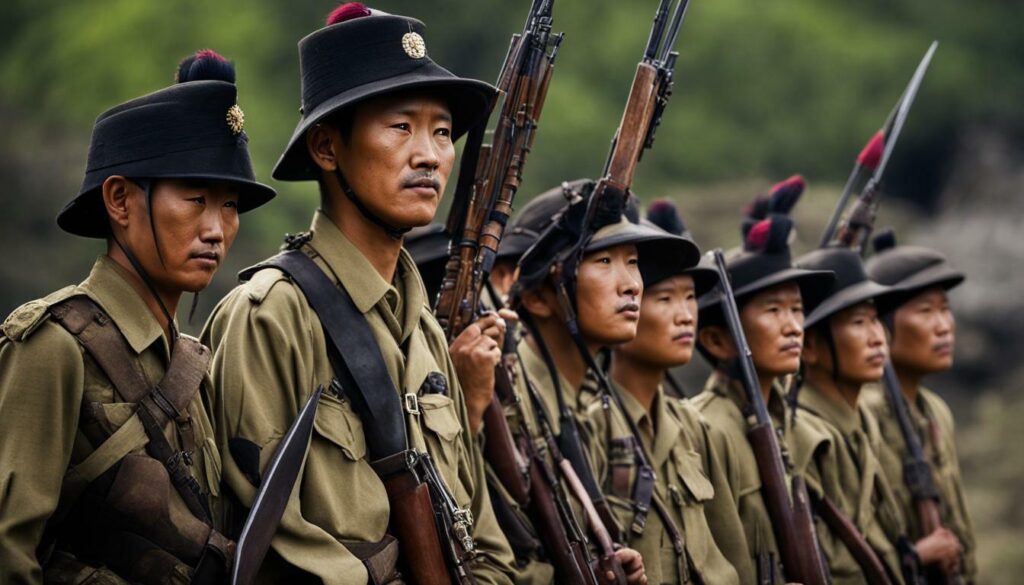

The Gurkhas have long been recognized as some of the bravest soldiers in the world, serving with honor and distinction in the British Army. With a rich history dating back centuries, these fearless warriors from Nepal have earned a reputation for their unwavering courage and unparalleled combat skills.
Throughout the ages, the Gurkhas have played a vital role in the military as members of the esteemed Gurkha regiment and army. They have participated in numerous conflicts, including the Indian Mutiny, World Wars, Falklands War, Malayan Emergency, and the Burma Campaign. Their contributions have been invaluable, often fighting in challenging terrains and demonstrating exceptional bravery in the face of adversity.
Key Takeaways:
- The Gurkhas have a long-standing history as brave soldiers in the British Army.
- They have served in various wars and conflicts, showcasing their unwavering courage and combat skills.
- Prince Charles has been the Gurkha Colonel-in-Chief for 40 years, acknowledging the Gurkhas’ contributions.
- Resources, such as books and talks, are available to explore the Gurkhas’ rich history and service.
- The Gurkhas are known for their use of the kukri, a traditional Nepalese knife, in combat.
The Legendary Gurkhas: A Rich History of Bravery and Service
The Gurkhas’ rich history is filled with tales of unparalleled bravery, as they have fearlessly served their nation and the British Army for centuries. Renowned for their exceptional military prowess, the Gurkhas have left an indelible mark on the annals of warfare. Their legacy of valor and dedication is deeply rooted in their traditions and deeply ingrained in their recruitment process, which seeks only the bravest warriors.
Since the early 19th century, the Gurkhas have been recruited from the hill regions of Nepal, where their reputation for fearlessness on the battlefield had already spread far and wide. The rigorous selection process ensures that only the strongest and most determined individuals are chosen to become Gurkhas. These soldiers undergo intense training, honing their combat skills and discipline to prepare for the challenges they may face in the line of duty.
The Gurkhas’ service to the British Army has been nothing short of exemplary. They have fought bravely in numerous conflicts, including the Indian Mutiny, both World Wars, the Falklands War, the Malayan Emergency, and the Burma Campaign. Their ability to navigate through dense jungles and their expertise in jungle warfare have made them formidable opponents in challenging terrains. Their unwavering bravery and unwavering loyalty have earned them prestigious honors, including the coveted Victoria Cross.
Throughout their illustrious history, the Gurkhas have remained true to their traditions. Their commitment to their ancestral roots is evident in their distinctive uniform, which includes the traditional Gurkha hat and the iconic kukri, a traditional Nepalese knife. The kukri, with its curved blade, symbolizes strength and versatility, making it an integral part of a Gurkha’s weaponry. The Gurkhas’ exceptional combat skills, coupled with their unwavering bravery, continue to make them a force to be reckoned with in the world of military service.
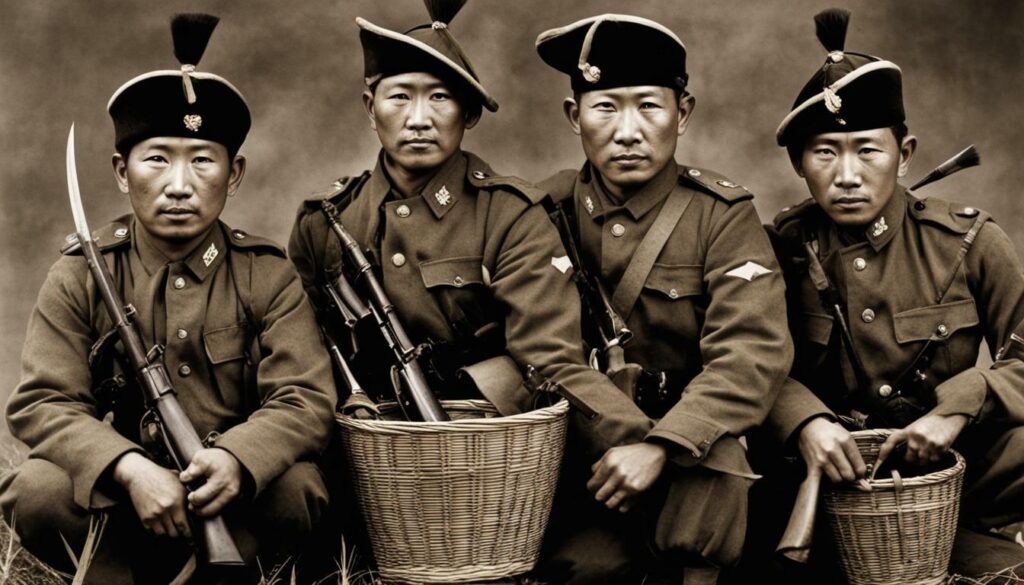

| Famous Gurkhas | Achievements |
|---|---|
| Ganju Lama | Victoria Cross recipient, World War II |
| Tul Bahadur Pun | Victoria Cross recipient, World War II |
| Lachhiman Gurung | Victoria Cross recipient, World War II |
“Better to die than be a coward” – Gurkha motto
The Gurkhas’ rich history, marked by their unwavering bravery and commitment to duty, serves as a testament to their exceptional valor. With their illustrious military service and legendary tales of heroism, the Gurkhas continue to be revered as a symbol of courage and resilience. Their unwavering dedication to their nation and the British Army has made them an integral part of military history, and their legacy is destined to endure for generations to come.
Gurkhas in Warfare: From the Indian Mutiny to Modern Conflicts
The Gurkhas have displayed their unwavering bravery and skills in warfare, playing crucial roles in notable conflicts from the Indian Mutiny to recent modern conflicts. With a history spanning over two centuries, the Gurkhas have established themselves as exceptional soldiers in various battles.
In the Falklands War of 1982, the Gurkha regiment proved their mettle once again. Despite the challenging terrain and unpredictable conditions, they demonstrated their expertise in jungle warfare, making a significant impact on the outcome of the conflict. Similarly, during the Malayan Emergency from 1948 to 1960, the Gurkhas’ guerrilla warfare tactics became instrumental in countering the insurgent forces.
In World War II, the Gurkhas played a vital role in the Burma Campaign, fighting against the Japanese forces in the dense jungles. Their ability to navigate and engage in close-quarter combat in these challenging environments proved invaluable. The Gurkhas’ resilience and strategic prowess greatly contributed to the success of the Allied forces in the region, earning them well-deserved recognition.
| Conflict | Gurkha Regiment | Year |
|---|---|---|
| Indian Mutiny | Various | 1857-1858 |
| World War I | Gurkha Brigade | 1914-1918 |
| World War II | Gurkha Brigade | 1939-1945 |
| Falklands War | Gurkha Regiment | 1982 |
| Malayan Emergency | Gurkha Regiment | 1948-1960 |
| Burma Campaign | Gurkha Brigade | 1942-1945 |
The Gurkhas’ contributions to warfare have earned them a solid reputation as fierce and honorable soldiers. Their ability to adapt to different environments and their unwavering dedication to their duties have been consistently demonstrated throughout history, making them a formidable force on the battlefield.
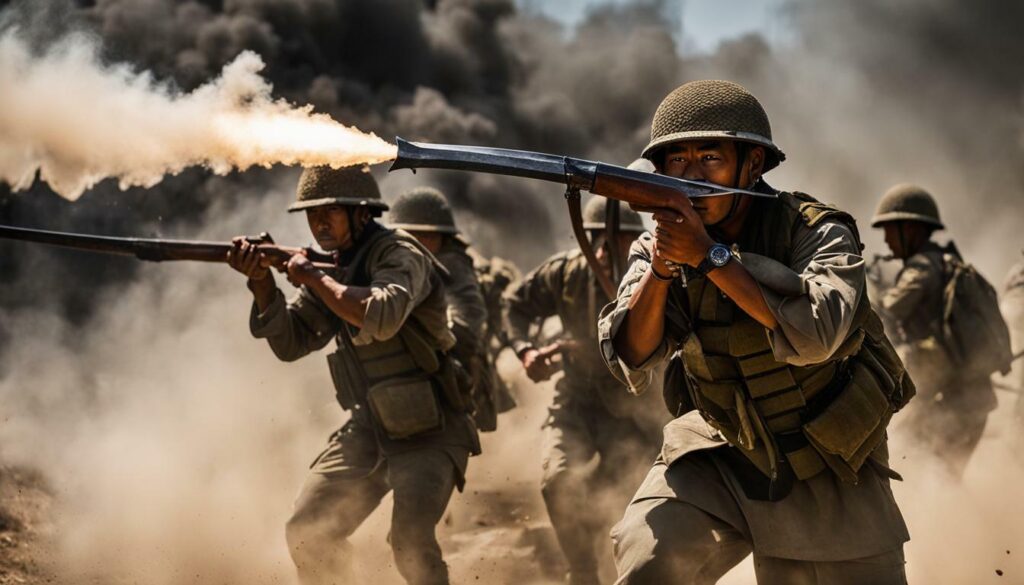

As Major General Sir David Ochterlony highlighted in his talk on the Gurkhas’ 206 years of service, their legacy continues to inspire generations of soldiers. Their prowess and bravery are documented in various books, delving into their history, traditions, and remarkable achievements.
The Gurkhas’ weapon of choice, the kukri, is a symbol of their strength and versatility in combat. This traditional Nepalese knife embodies their fighting spirit and has become an iconic representation of the Gurkhas’ warrior culture.
Royal Recognition: Prince Charles and the Gurkhas
Prince Charles has been closely associated with the Gurkhas for four decades, serving as their esteemed Colonel-in-Chief and recognizing their invaluable service to the British Crown. His longstanding connection to the Gurkhas highlights the deep respect he holds for these brave warriors from Nepal who have made significant contributions to the military.
As the Gurkha Colonel-in-Chief, Prince Charles has been instrumental in acknowledging and celebrating the Gurkhas’ unwavering commitment and dedication. He has personally witnessed their skill, bravery, and unwavering loyalty, which has earned them a well-deserved place in the history of the British Army.
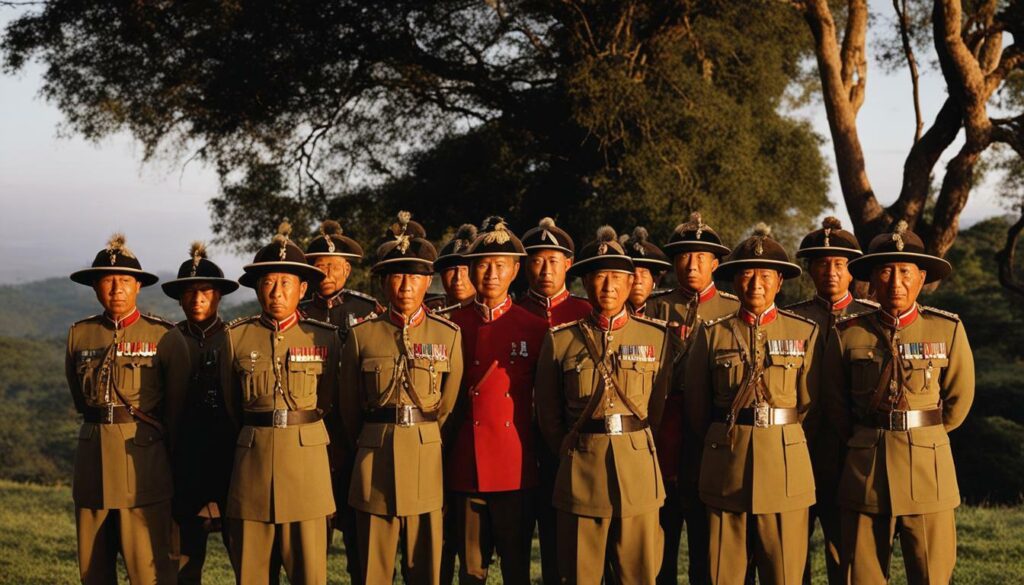

Under Prince Charles’ patronage, the Gurkhas have received royal recognition and support. His association with the Gurkhas has strengthened their bond with the British Crown and has ensured that their legacy endures for future generations. Through his continued advocacy, Prince Charles has helped raise awareness of the Gurkhas’ contributions and the unique challenges they face.
The Gurkhas’ relationship with Prince Charles goes beyond mere ceremonial duties. His genuine admiration and respect for their courage and commitment have made a lasting impact on both the Gurkha soldiers and the wider community. As the Gurkha Colonel-in-Chief, Prince Charles has played a crucial role in fostering camaraderie and forging strong ties between the Gurkhas and the British Army.
Together with the Gurkhas, Prince Charles stands as a testament to the shared values of bravery, honor, and service. His unwavering support and recognition of their contributions have further solidified the Gurkhas’ esteemed position as one of the world’s most formidable and revered military units.
Exploring Gurkha History: Books and Talks
For those eager to delve deeper into the remarkable history of the Gurkhas, books and talks offer valuable insights into their legacy and military achievements. Numerous publications have been written that provide comprehensive accounts of the Gurkhas’ significant contributions to the British Army and their unwavering courage on the battlefield.
One notable resource is a book titled “Gurkhas: The Bravest of the Brave” by Major General Sir David Ochterlony. This insightful work delves into the extensive history of the Gurkhas, spanning over two centuries. Major General Sir David Ochterlony, who served as a Gurkha officer, offers firsthand knowledge and perspectives, shedding light on the Gurkhas’ unwavering loyalty, tenacity, and exceptional military skills.
In addition to books, talks and presentations provide an interactive platform to learn about the Gurkhas’ remarkable history. Major General Sir David Ochterlony, renowned for his expertise on the subject, has delivered captivating speeches that illuminate the countless sacrifices and bravery of the Gurkhas throughout their 206 years of service.
By engaging with these literary and oral resources, readers and attendees can gain a deeper appreciation for the Gurkhas’ rich history, their unparalleled dedication, and their extraordinary contributions to the British Crown.
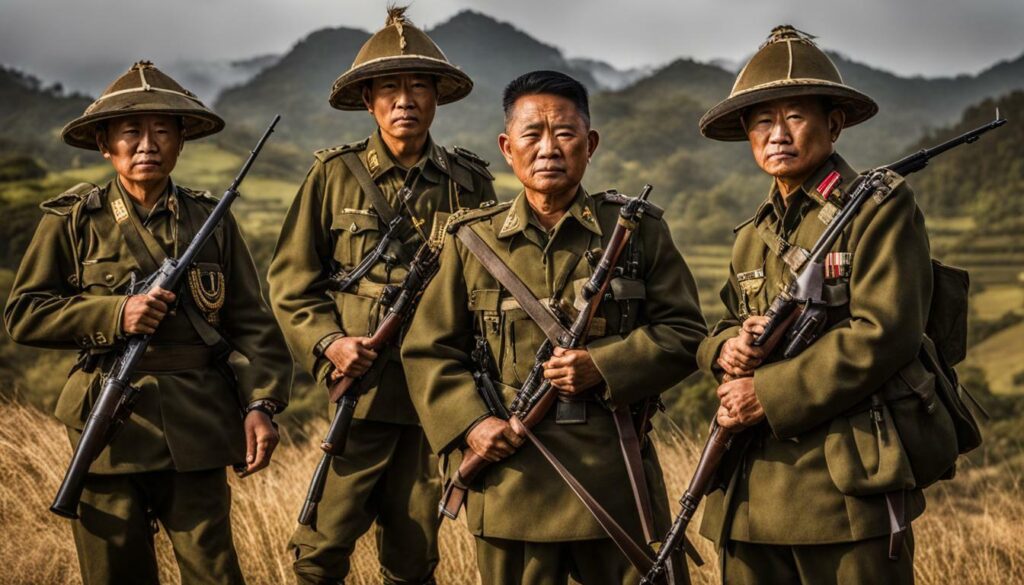

| Recommended Books on Gurkha History | Author |
|---|---|
| “Gurkhas: The Bravest of the Brave” | Major General Sir David Ochterlony |
| “The Gurkhas: A History of the Gurkha Soldier” | John Parker |
| “Gurkhas at War: In Their Own Words” | Ed Smith |
The Formidable Gurkha Weapon: The Kukri
The Gurkhas’ formidable reputation on the battlefield is closely linked to their distinct weapon, the kukri, a traditional Nepalese knife known for its versatility and lethal effectiveness. This curved blade has been an integral part of Gurkha culture and warfare for centuries, symbolizing their courage and skill.
The kukri’s design showcases both its functionality and symbolism. With a distinct inwardly curved blade, the kukri excels at slicing through targets with ease. Its unique shape allows for powerful chopping strokes, making it a versatile tool for both combat and everyday tasks. The kukri’s compact size and lightweight construction make it easy to carry and conceal, while its razor-sharp edge ensures swift and precise strikes.
“The kukri is not just a weapon; it is a symbol of Gurkha courage and honor.”
Gurkha soldiers undergo rigorous training to master the use of the kukri, honing their skills in close-quarters combat and jungle warfare. Renowned for their exceptional physical strength and fearlessness, the Gurkhas have earned a fearsome reputation on the battlefield, wielding the kukri as their trusted companion.
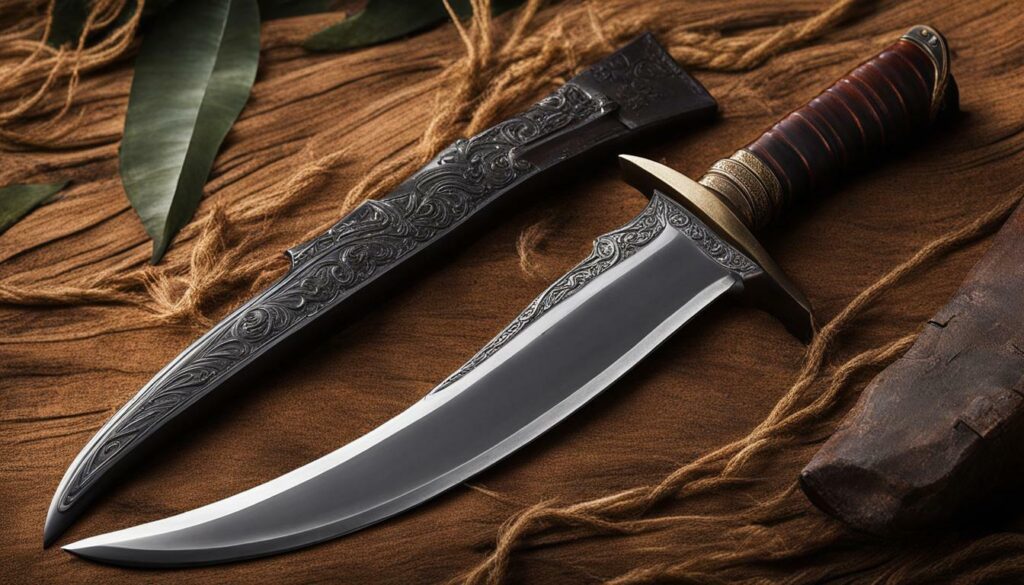

The kukri’s significance extends beyond its practicality, embodying the rich cultural heritage of the Gurkhas. It is a symbol of their bravery, loyalty, and unwavering dedication to duty. The kukri is deeply ingrained in Gurkha traditions and rituals, with its presence signifying respect and honor.
| Key Features of the Kukri | Benefits |
|---|---|
| Distinct Curved Blade | Improved slicing and chopping capabilities |
| Compact Size | Easy to carry and conceal |
| Razor-Sharp Edge | Swift and precise strikes |
| Cultural Symbolism | Representing courage, honor, and loyalty |
The kukri is more than just a weapon; it is a testament to the Gurkhas’ indomitable spirit and legacy. As they continue to serve and protect, the kukri remains an enduring symbol of their courage and unwavering commitment to preserving peace.
Recognition in Aldershot: Honoring the Bravery of Gurkhas
The courage and value of Gurkhas serving in the British Army were recently recognized in Aldershot, where a statue depicting Havildar Kulbir Thapa VC stands as a tribute to their bravery. This statue, unveiled in September 2021, serves as a poignant reminder of the Gurkhas’ unwavering commitment and sacrifices made in service to the British Crown. It stands as a symbol of gratitude and admiration for their remarkable contributions to the military.
The Gurkhas have a long-standing relationship with Britain, with over 4000 serving in the British Army and a high level of deployable personnel. Throughout history, they have proven their valor in countless wars and conflicts, earning numerous accolades, including Victoria Crosses. From the Indian Mutiny to the World Wars, Falklands War, Malayan Emergency, and the Burma Campaign, the Gurkhas have consistently displayed their exceptional skill and bravery, particularly in jungle warfare.
“The legacy of the Gurkhas and their unwavering dedication to duty is truly inspiring. The statue in Aldershot serves as a powerful tribute to their bravery and exemplary service.” – Major General Sir David Ochterlony.
Prince Charles has served as the Gurkha Colonel-in-Chief for 40 years, serving as a testament to his recognition of the Gurkhas’ contributions to the military. His enduring support and acknowledgment have further strengthened the bond between the British Crown and the Gurkhas. To explore the rich history of the Gurkhas, books and talks offer valuable insights. Major General Sir David Ochterlony’s talk, in particular, provides a comprehensive overview of their remarkable 206 years of service and their unwavering commitment to the military.
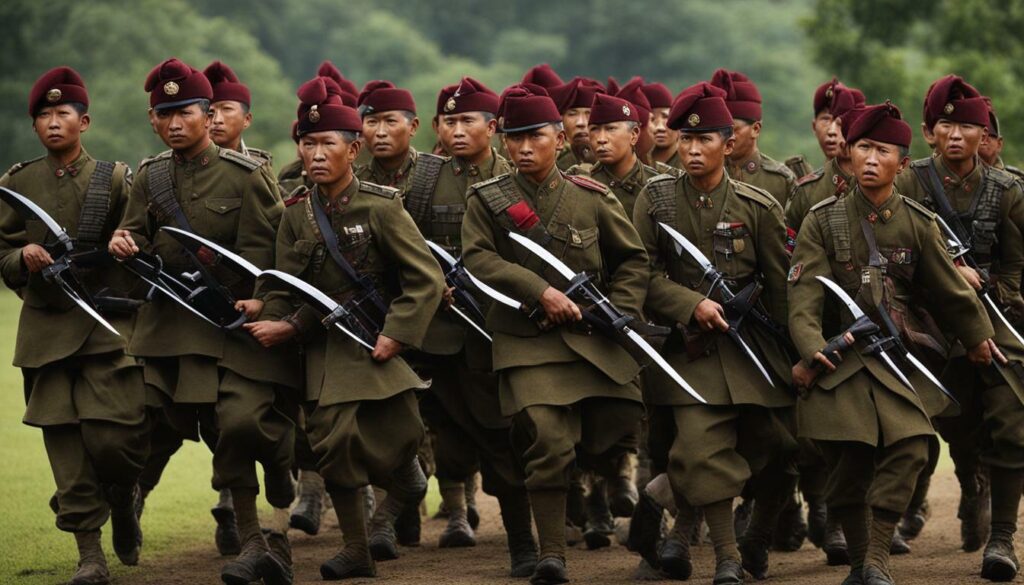

The Gurkhas’ reputation as formidable soldiers is exemplified by their use of the kukri, a traditional Nepalese knife known for its versatility in combat. Their tenacity, skill, and unwavering loyalty make them an integral part of the British Army. The recent recognition in Aldershot serves as a testament to their bravery and unwavering service, reinforcing the enduring legacy they leave behind as an emblem of courage and dedication.
Gurkhas’ Legacy: An Enduring Symbol of Courage
The Gurkhas’ legacy extends beyond their rich history, serving as an enduring symbol of courage and dedication that continues to inspire generations. With over 4,000 Gurkhas serving in the British Army, their value and bravery are recognized and celebrated. In September 2021, a statue was unveiled in Aldershot, depicting Havildar Kulbir Thapa VC, who carried a wounded British soldier off the battlefield during World War I, exemplifying the selflessness and unwavering commitment of the Gurkhas.
The Gurkhas have fought in numerous wars and conflicts, earning accolades such as Victoria Crosses for their exceptional bravery. From their involvement in the Indian Mutiny to the Falklands War, their skill in jungle warfare and unwavering determination on the battlefield have left an indelible mark in military history. Their contributions in notable conflicts like the Malayan Emergency and the Burma Campaign have also solidified their reputation as formidable soldiers.
Quotes:
“The Gurkhas’ courage and dedication have been instrumental in protecting our nation and upholding the values of the British Army. Their legacy of bravery serves as a constant reminder of the sacrifices made by these extraordinary soldiers.” – Prince Charles, Gurkha Colonel-in-Chief
Prince Charles, who has served as the Gurkha Colonel-in-Chief for 40 years, has lauded the Gurkhas for their unwavering commitment and sacrifices. Their contributions to the military have not gone unnoticed, and their bravery has been recognized by the highest levels of leadership.
To explore the rich history and service of the Gurkhas, there are various books available that delve into their remarkable journey. Major General Sir David Ochterlony’s talk sheds light on their 206 years of unwavering dedication and valiant service to the British Crown. These resources provide a deeper understanding of the Gurkhas’ profound impact on military history.
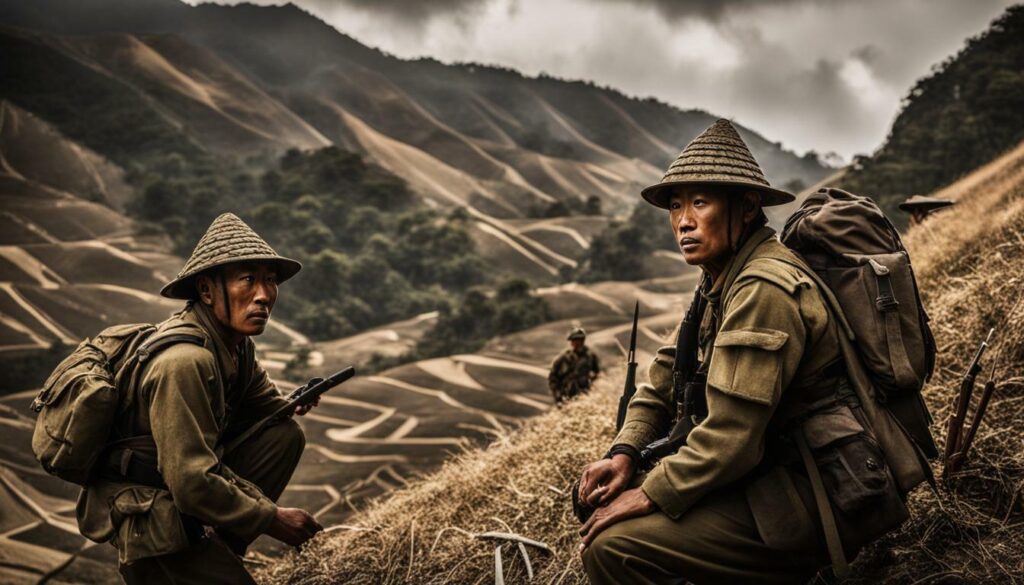

The Gurkhas’ formidable combat skills are epitomized by their use of the kukri, a traditional Nepalese knife. Known for its versatility in battle, the kukri has become synonymous with the Gurkhas’ courage and ferocity on the battlefield. It is a powerful symbol of their indomitable spirit and unwavering determination to protect and serve.
In summary, the Gurkhas’ legacy as an enduring symbol of courage and dedication is a testament to their unwavering commitment to the military. Their bravery and selflessness continue to inspire generations, serving as a reminder of the incredible sacrifices made by these extraordinary soldiers.
Conclusion
The Gurkhas’ unwavering bravery and remarkable history make them a truly remarkable force, deserving of the utmost respect and admiration. With a longstanding relationship with Britain, over 4000 Gurkhas currently serve in the British Army, showcasing their high level of deployable personnel.
Throughout history, the Gurkhas have played a significant role in various wars and conflicts, including the Indian Mutiny, both World Wars, the Falklands War, the Malayan Emergency, and the Burma Campaign. Their expertise in jungle warfare has been particularly noteworthy, earning them accolades and Victoria Crosses for their valor.
Prince Charles, serving as the Gurkha Colonel-in-Chief for four decades, has acknowledged the Gurkhas’ contributions to the military and their dedication to the British Crown. For those interested in delving deeper into their history and service, there are books available that provide valuable insights, and Major General Sir David Ochterlony’s talk offers a comprehensive understanding of their 206 years of service.
The Gurkhas’ reputation as formidable soldiers is further exemplified by their use of the kukri, a traditional Nepalese knife known for its versatility in combat. This iconic weapon is a symbol of their combat skills and embodies their strength and courage on the battlefield.
The recent recognition of the Gurkhas in Aldershot, with the unveiling of the statue depicting Havildar Kulbir Thapa VC, serves as a testament to their bravery and value in the British Army. As they continue to serve, the Gurkhas leave behind an enduring legacy as a symbol of courage and a force that has left an indelible mark on the military landscape.
FAQ
Who are the Gurkhas?
The Gurkhas are soldiers from Nepal who serve in the British Army.
How long have the Gurkhas been serving in the British Army?
The Gurkhas have a longstanding relationship with Britain that spans over 200 years.
What wars have the Gurkhas fought in?
The Gurkhas have fought in wars such as the Indian Mutiny, both World Wars, the Falklands War, the Malayan Emergency, and the Burma Campaign.
How many Gurkhas currently serve in the British Army?
There are over 4000 Gurkhas serving in the British Army.
What is the significance of the Gurkhas’ kukri?
The kukri is a traditional Nepalese knife that symbolizes the Gurkhas’ combat skills and versatility in battle.
Who is the Gurkha Colonel-in-Chief?
Prince Charles has served as the Gurkha Colonel-in-Chief for 40 years.
What is the recent recognition of the Gurkhas in Aldershot?
In Aldershot, a statue was unveiled to honor the bravery of the Gurkhas, depicting Havildar Kulbir Thapa VC carrying a British soldier off the battlefield in 1915.
Where can I learn more about the Gurkhas’ history?
You can explore the Gurkhas’ history through various books and a talk by Major General Sir David Ochterlony.
What is the legacy of the Gurkhas?
The Gurkhas have left an enduring legacy as a symbol of courage and have made significant contributions to the military.

